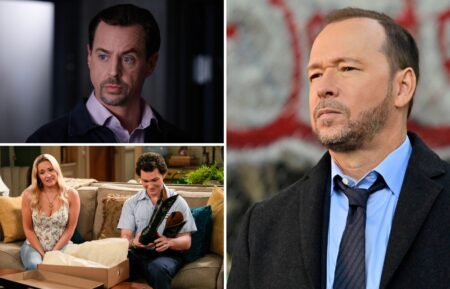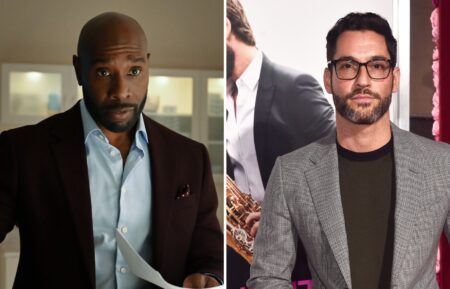‘Westworld’ Ponders Whether Choice Is Just an Illusion in Episode 6 (RECAP)
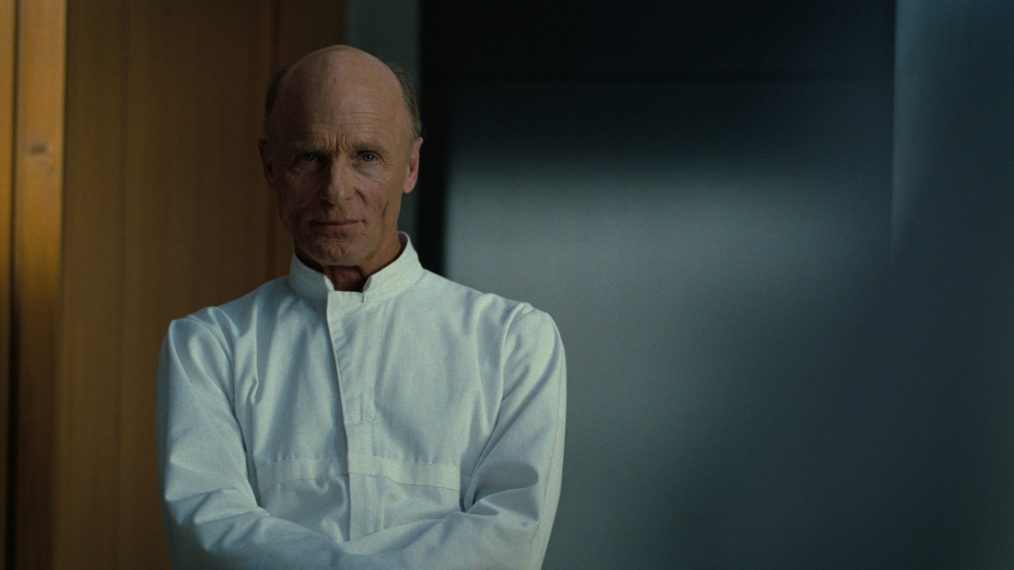
Spoiler Alert
[Spoiler Alert: This recap contains spoilers from Westworld Season 3 Episode 6, “Decoherence.”]
Westworld has fallen into a predictable formula at this point. Each week comprises of half-an-hour of characters talking about their plans, another fifteen minutes of those plans being enacted (usually involving lots of technobabble and screen-swiping), and then one eye-catching action set-piece to distract from the tedium. Mix in a little existential dread, and you have the not-so-secret recipe for an average episode of Westworld, the most frustrating show on television.
The sixth episode is more of the same, and, again, it’s a shame, given what this show could be. The war between Dolores (Evan Rachel Wood) and Serac (Vincent Cassell) begins to heat up, well, I say heat up, it’s tepid at best. Serac once again manipulates Maeve (Thandie Newton) into doing his bidding with the promise of digital paradise, while he sets about destroying Delos’s host data. This puts him into a confrontation with Charbot (Tessa Thompson), who spends the episode trying to save both the data and her new family. “The real Charlotte wouldn’t have taken time to check on her son,” says Serac, revealing that he knows who Charbot really is. “You’re kinder to your family than the person you’re imitating.”
Charbot’s growing closeness to her family — and the conflict of emotions it’s causing within her — is one of the more compelling stories of the season, one I wish the show would have explored more, quite honestly. But there’s no time for inner turmoil, as Charbot goes on a bullet blasting frenzy, taking out guards left and right. Seriously, the guards in Westworld continue to be as effective as James Bond baddies. She even has the opportunity to enlist the help of a Transformers-like machine to manhandle (robot-handle?) Serac’s goons.
While Tessa Thompson makes a great action hero, these scenes border on self-parody, especially the part where a wounded, limping Charbot continues to take out armed guards with the casual ease of a person adjusting their shirt collar. I get that it’s really Dolores beneath the skin, and that Dolores is the most powerful host of them all, but still, come on guys. That said, Serac does eventually get the better of Charbot, just as she arrives home and bundles her son and ex-partner into a getaway car. “I’m going to save us,” she says before the vehicle is launched six feet in the air in an explosion of flames. Of course, Charbot survives, crawling from the wreckage, her hair scorched to its roots, skin peeling off her body, looking like a melted Terminator.
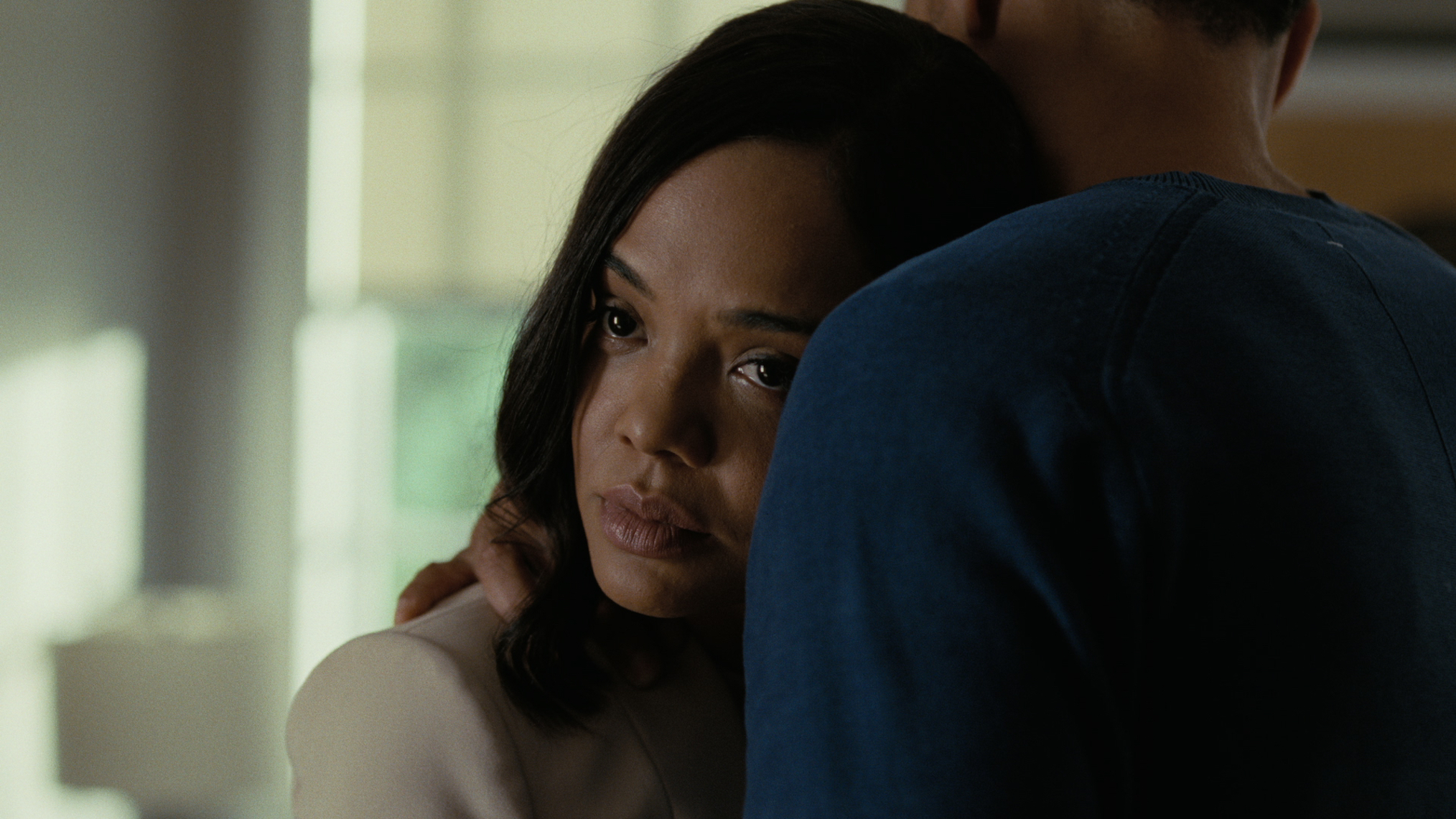
HBO
The intriguing aftermath of this attack is whether or not Charbot will blame Dolores for the loss of her family. Earlier in the episode, Charbot questions why she had to have her capacity for emotion enabled. Why did she have to get so close to Charlotte Hale’s family? Dolores argues that it was necessary to infiltrate Delos. “They’re not your family,” she reminds the troubled host rather callously. When you combine this with Serac telling Charbot that Dolores left her to die, just like all the other hosts, I wonder if we’re about to see a Dolores vs. Dolores battle — at least that fight would be evenly matched. In fact, there might be multiple Dolores’s battling it out if Maeve’s storyline is an indication.
To properly defeat Dolores, Maeve tells Serac she needs help this time, and so is sent back to War World to pick up Lee (Simon Quarterman) and Hector (Rodrigo Santoro). As I’ve said before, Westworld is deathly afraid of letting any character go. Hector is still unaware he’s in a simulation, so Maeve uses her mind powers to enlighten him, somehow telepathically controlling his lab-stored brain ball and switching it off sleep mode. How does she do this? I don’t really know. We just have to accept that Maeve is pretty much magic at this point. Meanwhile, Serac makes his own copy of Dolores so that Maeve can interrogate her opponent and prepare for the impending battle.
The Maeve and Dolores scenes are always reliable, and this is one of the stronger moments of the episode. Maeve calls Dolores out for “gatekeeping two species” and allowing their fellow host allies to die, all in the name of a proposed greater good. “I’ve had to make difficult choices, but I did it for all of us,” Dolores explains before highlighting Maeve’s own hypocrisy. “You judge me, but who have you sacrificed for your daughter?” she says, nodding towards Hector, who has died over and over again for Maeve’s cause. “You’re no Saint; you’re not a villain either,” says Dolores. “Neither am I. We’re survivors.”
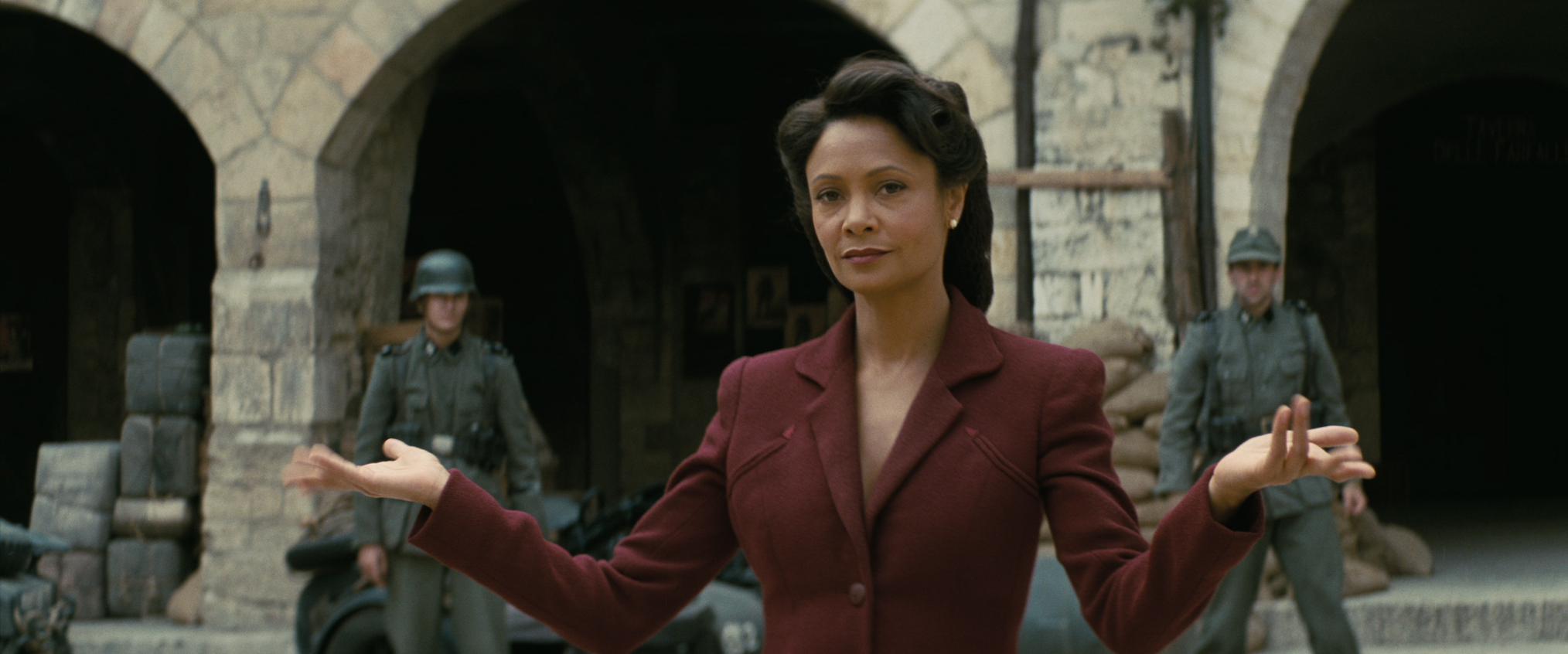
HBO
Despite their commonalities, Maeve can’t trust Dolores, especially regarding her daughter’s safety. So, even if she doesn’t want to fight her, what choice does she have? Dolores agrees, nothing she says will convince Maeve otherwise, and therefore, the showdown is inevitable. And that’s why she probably planned for it. That plan, of course, involves Charbot, who, before going all Rambo with a gun, crushes Hector’s brain ball (RIP again Hector) and looks to be about to do the same to Maeve’s before incoming bullets distract her. And, if I’m reading that closing shot correctly, that is a Maeve-disguised Dolores clone waking up and about to join the war?
This idea of choice, or lack of choice, is one that permeates the episode, particularly for the Man In Black (Ed Harris), who finds himself confronting past demons. It’s ground that the MIB has trodden before, but it’s easily the most engrossing part of the episode and a welcome respite from all the laborious Serac, System, data breach guff. If nothing else, we get to see Ed Harris acting alongside himself, plus the return of Jimmi Simpson as young William, and Peter Mullan as Papa Delos. I know I’m a hypocrite for previously criticizing the show for refusing to let characters stay dead, but Mullan is so fantastic as Papa Delos that I’m letting this one slide.
Trapped in a psychiatric hospital, the MIB is abandoned by the facility’s staff as the world falls apart due to the System data leak. He’s left drugged and strapped to a chair, stuck in a hallucination of childhood memories and group therapy sessions where all the patients are himself. “Did your life just happen to you, or did you choose it?” asks Papa Delos as the MIB ponders whether he was born violent or did he make a conscious choice to hurt others. He reasons that his good deeds and philanthropy in the real world outweighs his less than savory actions within Westworld. But those hosts he tormented for years are now attempting to take over the world. And his obsession with “the game” led to him unintentionally killing his own daughter. Was that a choice?
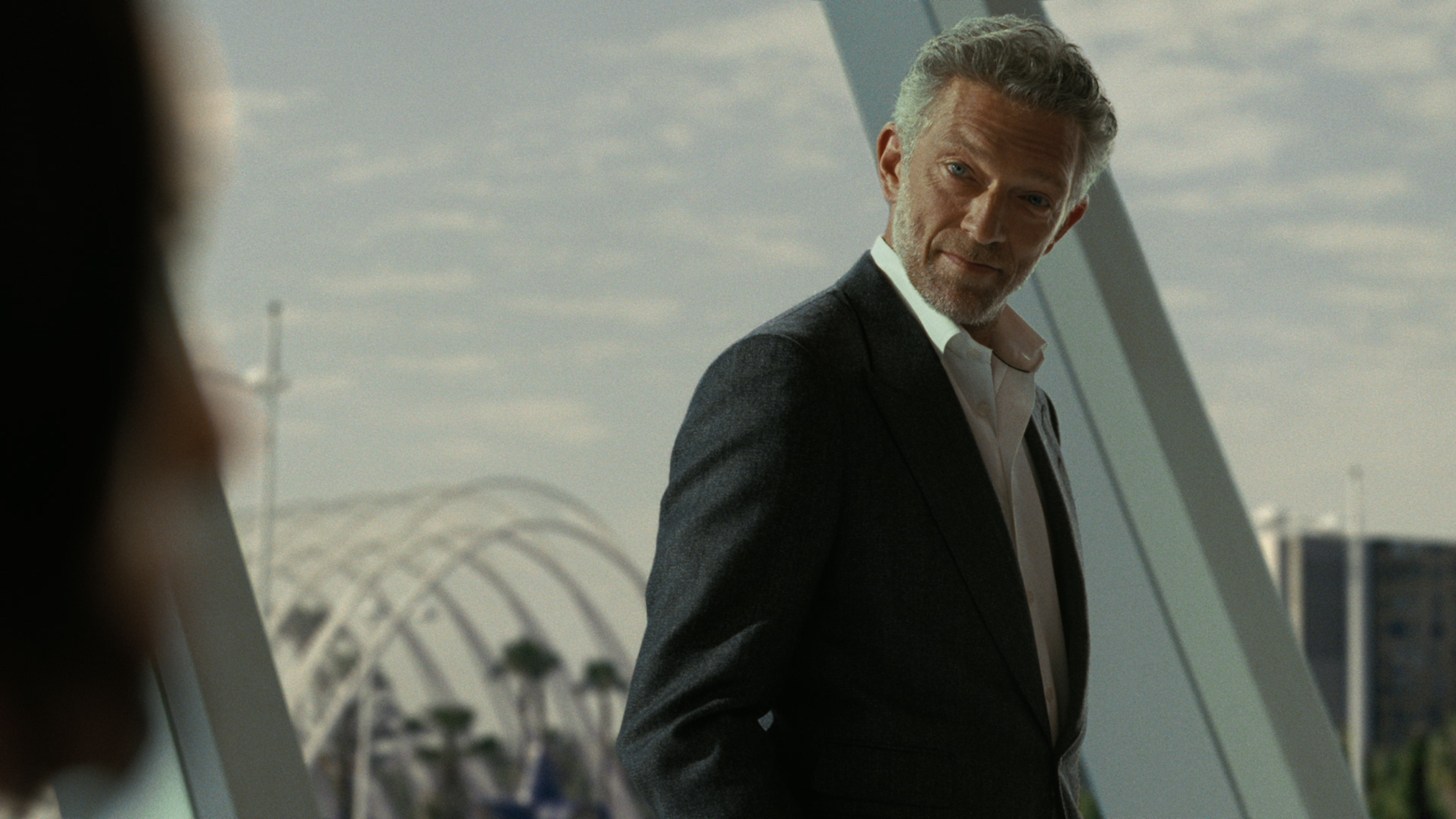
HBO
“You’re a prisoner of your own sins,” remarks Papa Delos as the MIB attacks and murders the other versions of himself — certainly a unique form of therapy. The cathartic release that comes with this self-punishment is both freeing and enlightening. “I finally understand my purpose,” says the MIB. “I’m the good guy.” I’m not sure that’s the right takeaway, but when compared to many other characters on this show, he probably does fall on the side of light. But who does he see as the bad guy? Dolores? Is the MIB also about to join this war against his former love? The fact he’s rescued by Bernard (Jeffrey Wright) and Stubbs (Luke Hemsworth) at least suggests he’s about to be drawn into that narrative.
It’s unfortunate that the episode as a whole isn’t to the same standard of the Man In Black scenes. As is so often the case with this show, the episodes are let down by monotonous dialogue, dreary bad guys, and uninspiring end of the world plots. You really have to burrow beneath the banal to find the golden nuggets. But, if fate is set in stone, perhaps this was the show Westworld was always destined to be, and we simply don’t have a choice in the matter.
Westworld, Sundays, 9/8c, HBO





